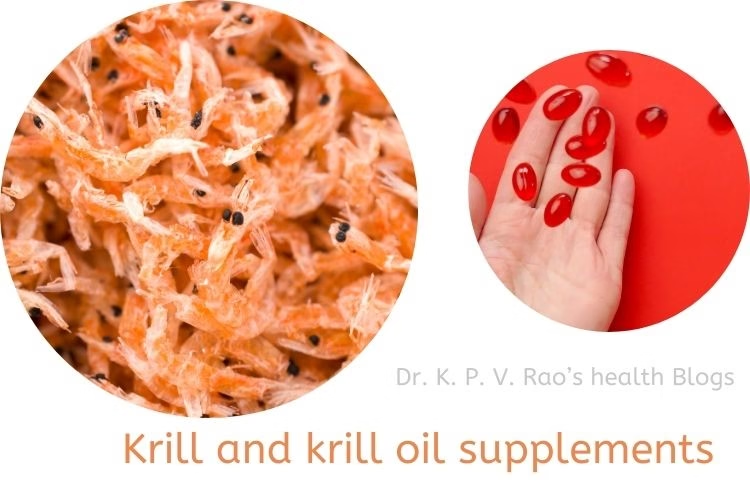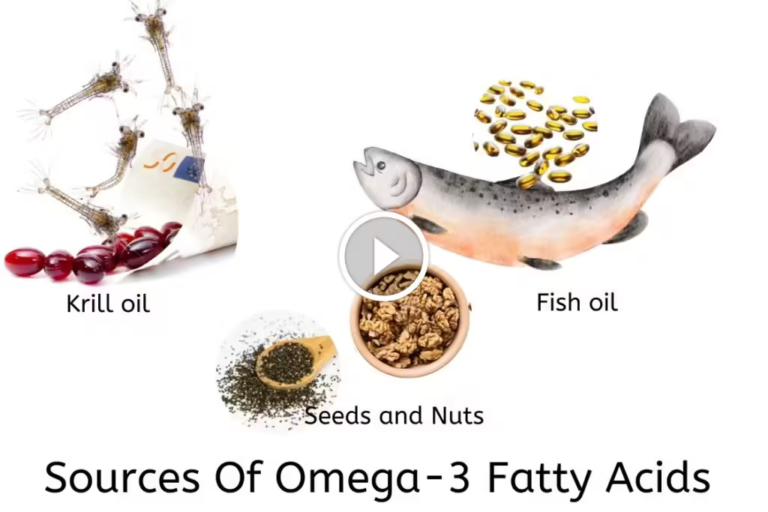The role of omega-3 fatty acids in the survivors of heart attacks
Omega 3 fatty acids What are they and their types?
Omega-3 fatty acids are a group of essential fats that are important for various body functions. They are classified into three main types:
- Alpha-linolenic acid (wing), which are found in plant products such as seeds and nuts, for example, chia and nut seeds.
- Eicosapentaenoic acid (EPA), and
- Docosahexaenoic acid (DHA).
Both eicosapentaenic acids and docosahexaenicos are found in animal products, especially in omega 3 fatty acids in krill fish and oil oil.

It is known that these fatty acids provide numerous health benefits, particularly in relation to cardiovascular health. Omega-3 fatty acids have been studied widely and have demonstrated potential to reduce the risk of heart disease and improve results for heart attack survivors.
Omega-3 fatty acids play a fundamental role in the recovery and general health of the survivors of heart attack. These essential fats are mainly known for their anti -inflammatory properties, which can significantly benefit cardiovascular health.
When inflammatory levels are reduced, the risk of additional complications is reduced, helping heart attack survivors on their trip to recovery.
In addition, Omega-3 fatty acids support improved blood circulation, efficient blood flow of the promotion and distribution of nutrients through the body, which is crucial for healing.
Why should we include foods rich in omega-3 fatty acids?
Clinical research has shown that people who incorporate omega-3 fatty acids in their diet experience a lower risk of later heart problems, which is particularly important for those who have previously suffered a heart attack.
Omega-3 fatty acids help reduce triglycerides, reduce blood pressure and improve endothelial function factors closely associated with cardiovascular stability and well-being. The inclusion of Omega-3 in the Nutrition Plan for heart attack survivors not only helps in the health of the heart, but also contributes to the general quality of life.
Foods that are high in omega 3 fatty acids
Omega-3 fatty acid sources
Heart attack survivors can obtain omega-3 fatty acids from various dietary sources, as well as nutritional supplements.
The rich sources include fatty fish such as salmon, mackerel, sardines and krill, which can naturally be incorporated into meals or can be taken as supplements that contain fish or Krill oil.

For those who prefer plant -based options, linen seeds, chia seeds and nuts are excellent options.
In addition, Omega-3 supplements, such as fish oil or algae oil capsules, can provide a concentrated source of these beneficial fats, which facilitates the achievement of Romanized intake.
Conclusion
The incorporation of omega-3 fatty acids in daily nutrition is a key strategy to support the recovery process for heart attack survivors. By focusing on Omega-3 sources, people can take proactive steps to improve their health and cardiovascular welfare.
Frequently questions about omega-3 fatty acids
What foods are higher in omega-3 fatty acids?
Salmon, mackerel, sardines, krill, nuts, linen seeds, chia seeds.
What are the benefits of omega-3 fatty acids?
Omega-3 fatty acids can help reduce inflammatory pressure, reduce blood pressure and reduce the risk of chronic diseases such as heart disease and cancer.
What do Omega 3 fats do for you?
Omega 3 fats help reduce inflammation, improve heart health and support brain function.
Who should not take omega-3 fatty acid?
People with fish or seafood allergies should not take omega-3 fatty acid supplements.
What is the daily dose for Omega-3 that contains supplements necessary to maintain the health of the heart?
The recommended daily dose of Omega-3 supplements for heart health is 1,000-4000 mg.
What is algae oil?
Algae oil is a type of microalgae derived oil. It is a rich source of omega-3 fatty acids, particularly docosahexaenic acid (DHA).
Cook fish destroys omega-3 fatty acids?
Cooking fish does not significantly destroy omega-3 fatty acids. Moderate methods of thermal cooking such as baking, roasting or preserving the furtive hunt most omega-3.


